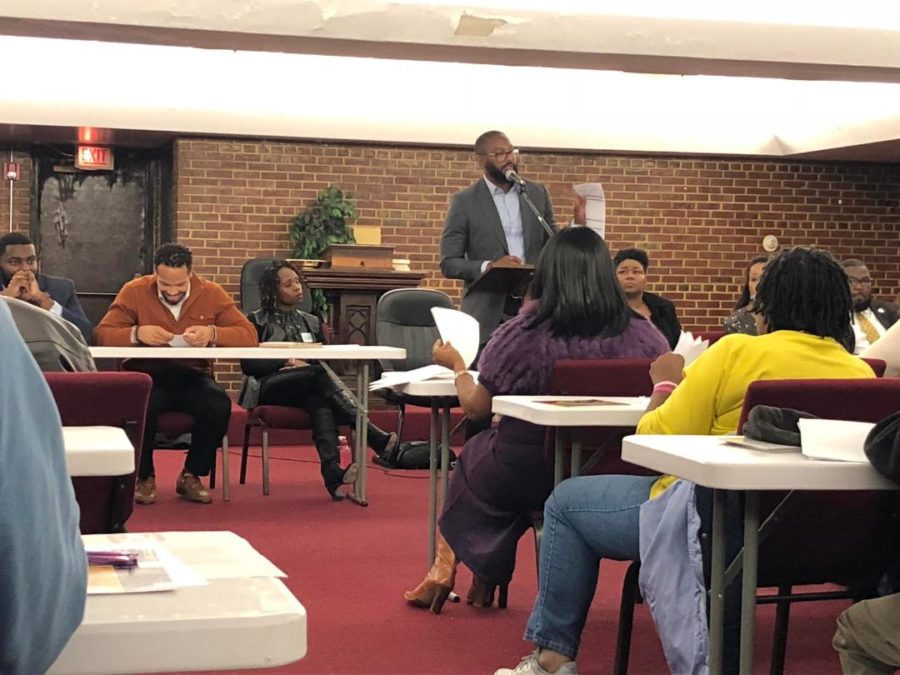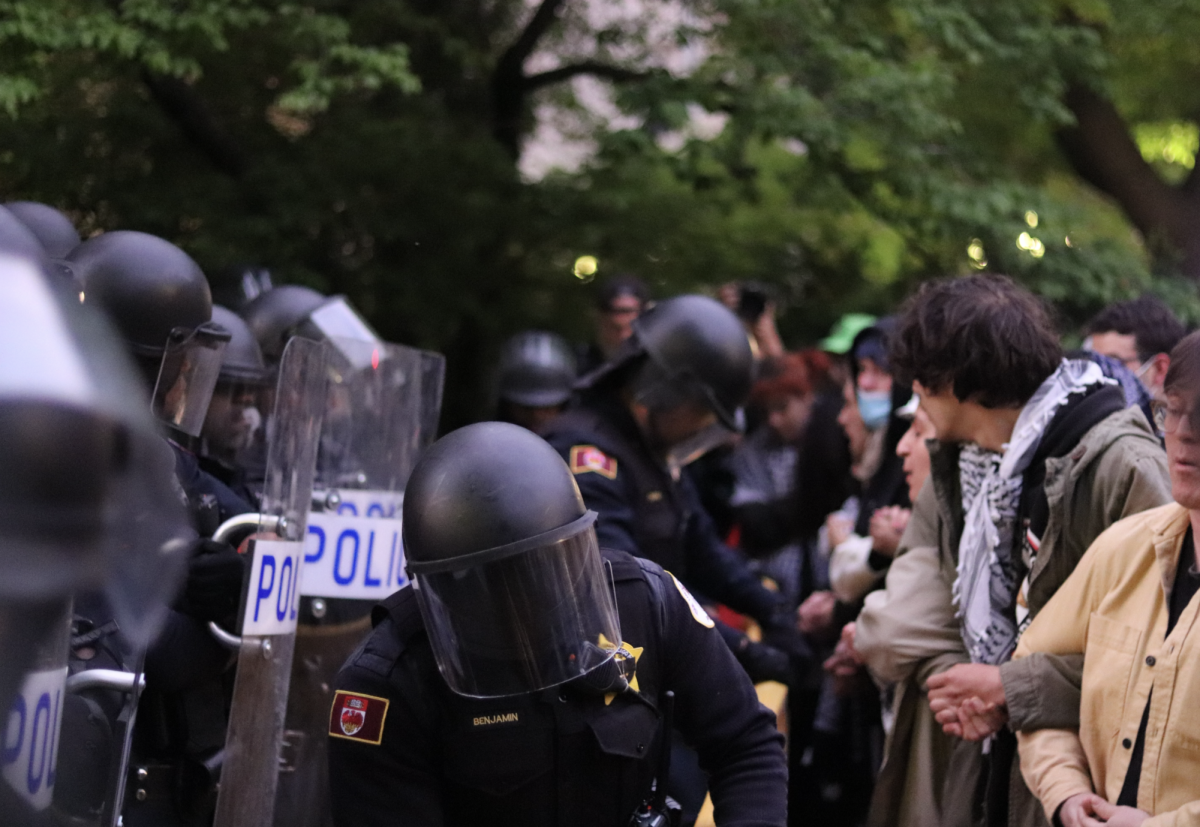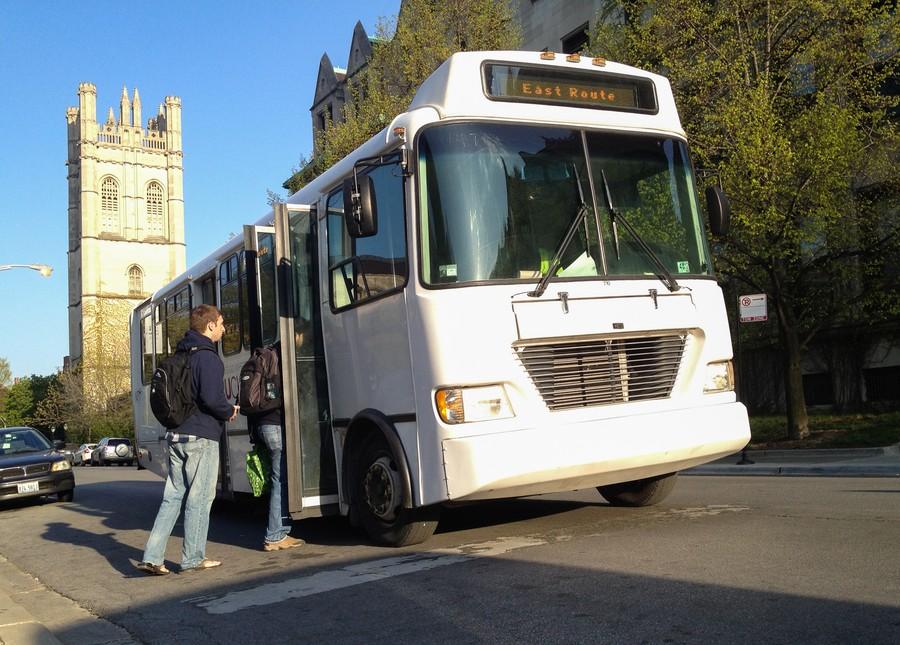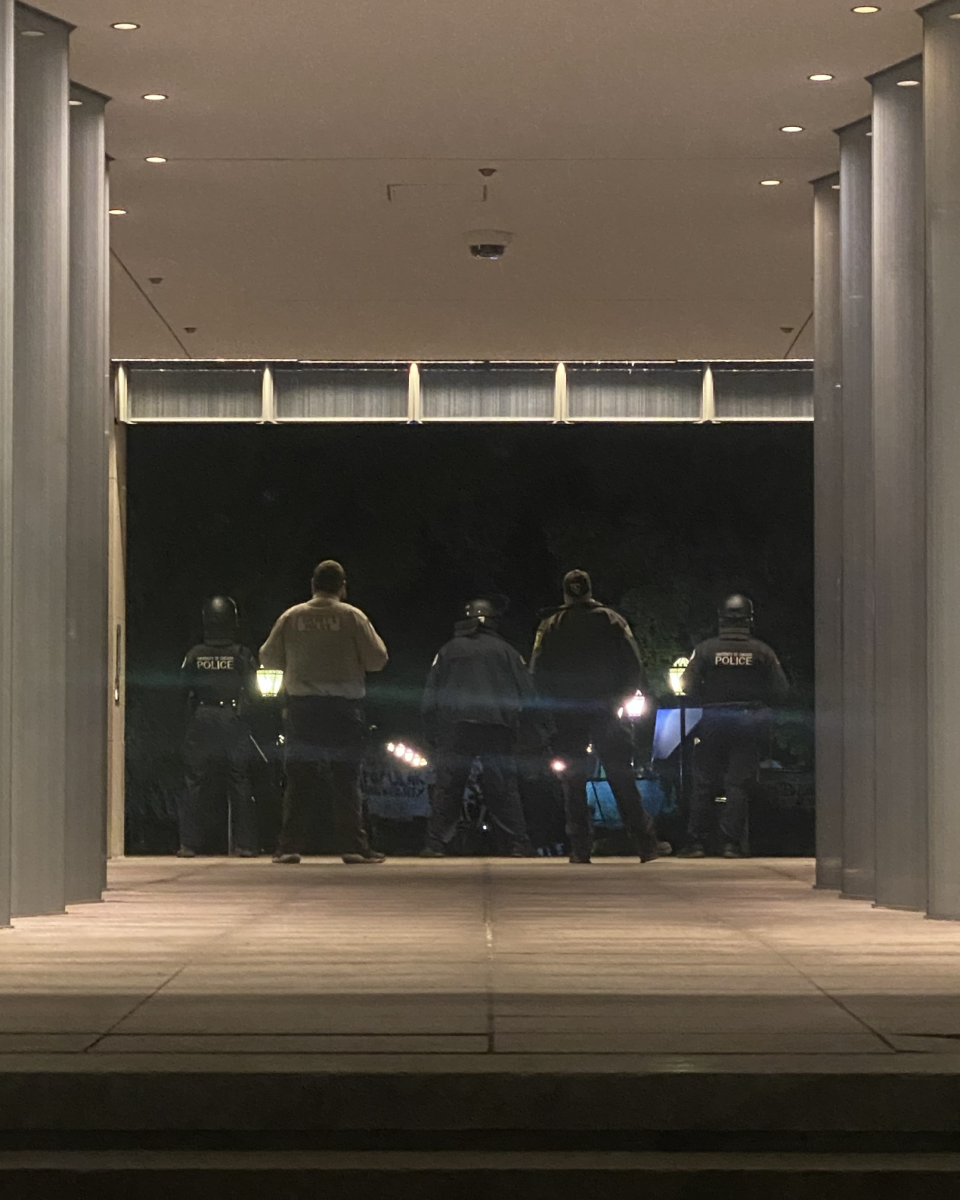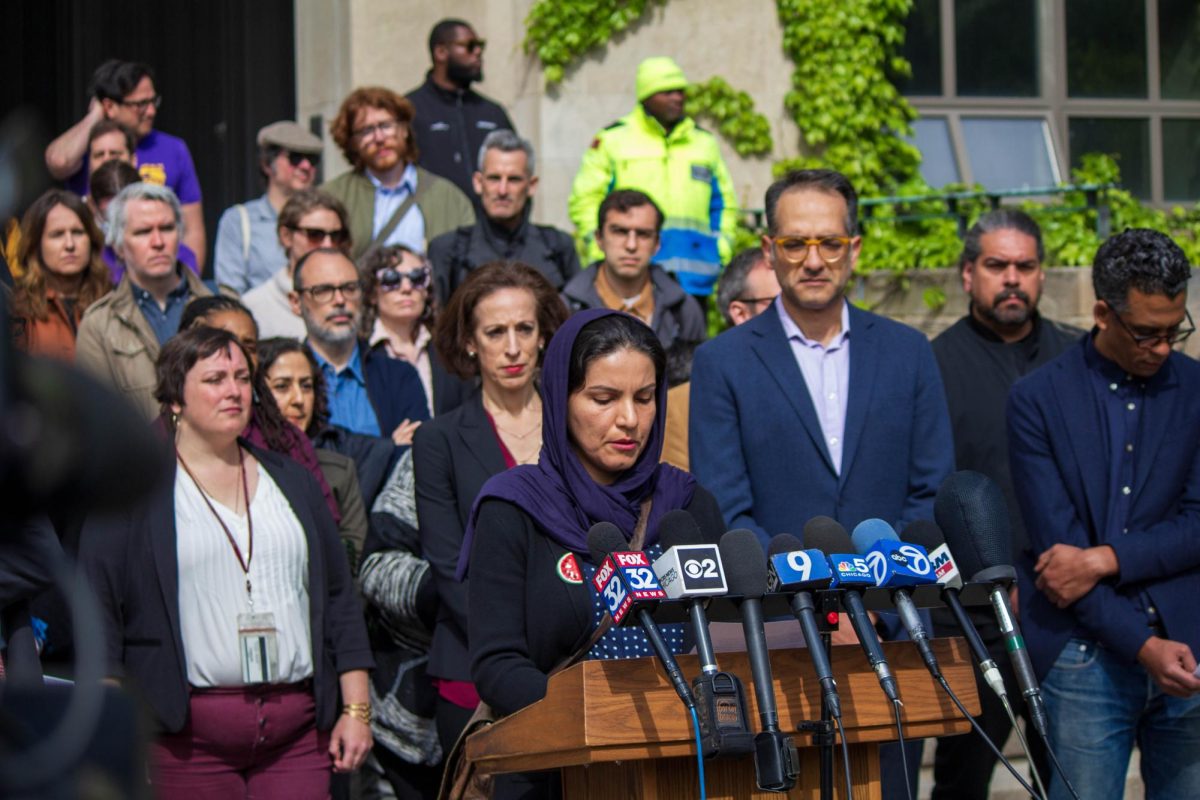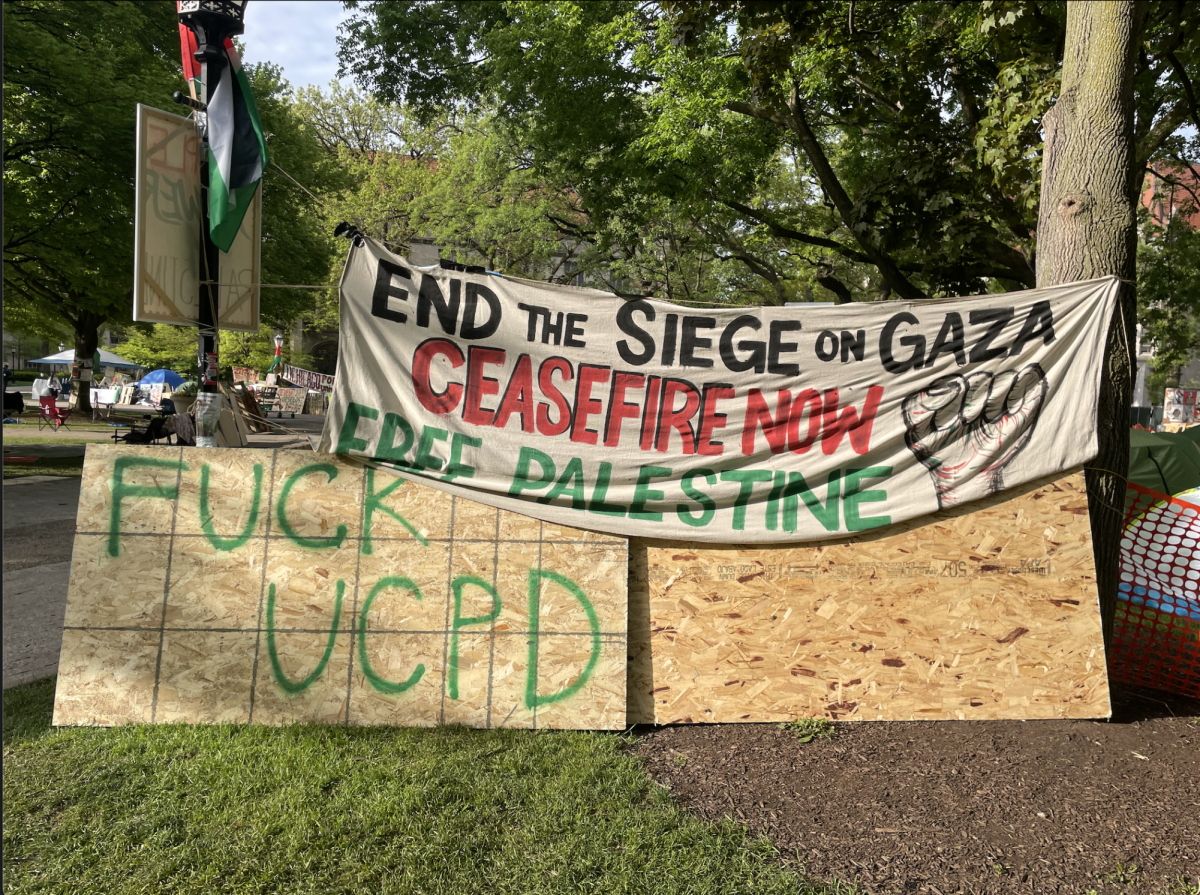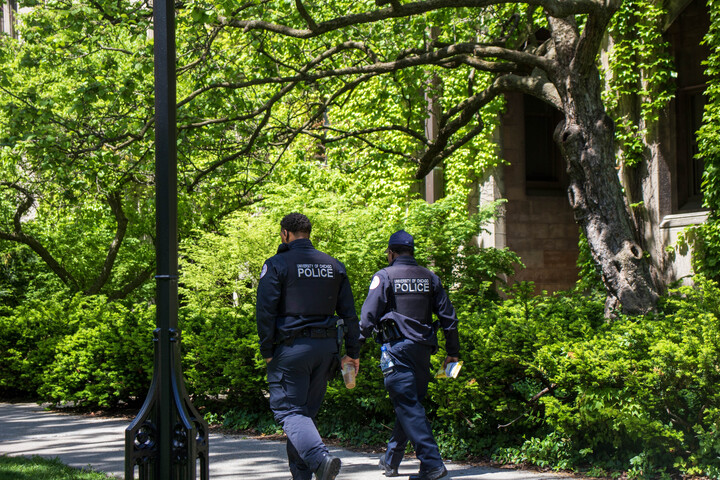Candidates for 20th Ward alderman responded to questions from The Maroon about local housing concerns.
Following incumbent Alderman Willie Cochran’s indictment on federal corruption charges, the 20th Ward aldermanic race has become one of the most heated in the city, with 15 candidates now on the ballot.
Four of them responded to our questions—former Local School Council member Jeanette Taylor, former educator Nicole Johnson, activist Anthony Driver, and Maya Hodari, former director of development at the Chicago Housing Authority (CHA).
We asked about rent control, affordable housing ordinances, and vacant lots.
While we didn’t ask about the forthcoming Obama Presidential Center (OPC), the candidates have spoken extensively about the OPC at forums. Though the OPC will lie in the neighboring Fifth Ward, many residents in the 20th Ward could be affected by potential changes in rents and economic activity that would follow the arrival of the OPC. Most candidates have expressed support for a Community Benefits Agreement (CBA).
Rent Control
The 1997 Illinois Rent Control Preemption Act has banned rent control in all forms for over two decades. According to the law, Illinois municipalities cannot enact any ordinances or resolutions that control the rent for private residential or commercial properties.
The Act has long been contested. It emerged as a campaign point in the 2018 Illinois gubernatorial race, with current Governor J. B. Pritzker campaigning in favor of lifting the ban. Nine wards, not including the 20th, saw nonbinding referendums on their ballots in the 2018 Illinois election on whether or not the ban should be lifted. Each ward saw at least 60 percent of votes voicing support of striking down the ban.
The Maroon: Do you support lifting the Illinois rent control ban?
Taylor, Driver, and Johnson all expressed support for lifting the ban.
Johnson elaborated on her answer, saying that she supports lifting the ban, “along with investigating other (possibly more effective) measures.”
She said she believes “rent control should be executed on a sliding scale,” based on “number of units in the housing development and assets of the landlord.”
Hodari was equivocal on the ban, saying she wants to “look at our collective goals on creating affordable housing units.”
She added, “The current version of this legislation simply reverses the prohibition on limiting the escalation of rents over time. The legislation is not going to create housing that is affordable to families earning 30 percent, 50 percent, 60 percent or 80 percent of area median income.”
Affordable Requirements Ordinance and Homes for All Ordinance
The Affordable Requirements Ordinance (ARO), enacted in 2007, requires new or rehabilitated housing developments with 10 or more units to designate 10 percent of developed units as affordable housing, or pay a “fee-in-lieu” that goes into the City’s Affordable Housing Opportunity fund. In 2015 the City updated the ARO to include, among other updates, an “off-site option” for developers in high-income areas or downtown to develop one-fourth of their 10 percent of affordable units off-site.
According to City of Chicago data, the ARO fell short of its five-year projection to create 1,200 affordable housing units by 2020. By July 2018, only 334 affordable housing units were allocated by the ARO.
The Homes for All Ordinance (HFA), proposed by community and activist groups, would require a quarterly report from the Chicago Housing Authority to be submitted to the City Council Committee on Housing and Real Estate that specifies unspent revenue and certain future development plans.
The Maroon: What do you think about the option for developers to pay a fee-in-lieu? Do you have strong opinions on any other aspect of the ordinance?
Johnson, Taylor, and Driver all opposed the fee-in-lieu option. Driver called the option a “loophole,” and has talked about it extensively in past forums.
Taylor said the ARO is “a good idea, that has had horrible implementation” and opposed the fee-in-lieu saying, “it furthers helps the displacement of residents in poor, working-class, Black and Latinx areas of the city.”
Johnson said that the importance of the ARO wasn’t only rooted in housing availability, but in a variety of locations to prevent de facto segregation.
“[The ARO] isn’t just [about] the number of units. It’s [about] spreading such units out across the city, as opposed to their overconcentration in certain mostly Black and Latino communities,” she said.
Hodari did not explicitly mention getting rid of the fee-in-lieu option. She noted in her answer that there has been an increase in the fee-in-lieu that came with the 2015 ARO update.
Hodari discussed other ways she believes affordable housing legislation could be improved, including changing rent accommodations and accounting for larger families.
She believes affordable housing should accommodate households with earnings at 30 percent of area median income, because most current affordable rents are set at 60 percent or 80 percent of area median income.
She added that she would want to examine “whether we are creating a variety of unit sizes to accommodate larger families with earnings at 30 percent, 50 percent, or 60 percent of area median income.”
“I am interested in researching options for creating new affordable units for large families in close proximity, when a new development only offers studios, one-bedrooms, and two bedrooms,” she said.
The Maroon: Do you support the proposed Homes for All ordinance? If you do support the Homes for All Ordinance, what plans do you have to help ensure the passage of this ordinance by City Council?
Johnson, Taylor, and Driver voiced support for the HFA ordinance.
Hodari did not explicitly say whether or not she supports the HFA ordinance, which would in effect increase accountability pressures for the CHA.
Hodari noted that the CHA’s ability to create more affordable housing units is limited by the challenge of securing public financing, especially given rising construction costs due to “robust construction activities in the central business district and adjacent neighborhoods.”
Vacant Lots
The Large Lots Program was introduced in 2014 by Mayor Rahm Emanuel to sell many of the city’s 30,000-plus vacant lots. The program allows property owners to buy vacant lots that lie on the same block as their current property for one dollar. According to the Large Lots website, the program has helped sell 1,248 lots since its inception. Many have criticized the program as benefiting developers who own properties on blocks with vacant lots, and hurting community spaces like urban gardens.
The Maroon: Do you think that vacant lots are a large issue in the 20th Ward, and why? If so, how would you address the issue of vacant lots?
Each candidate cited vacant lots as a large issue in the 20th Ward.
Taylor outlined how she plans to repurpose vacant lots.
“These vacant areas can and should be used for housing especially but also community gardens, play lots, and other facilities to enrich the community. Even though I do have some ideas I would want to ask that direct community what they want to see come to their community and work with them to get it,” she said.
The Maroon: Will you work to continue the Large Lots program?
Johnson, Taylor, and Driver said that they would continue the Large Lots program.
Driver and Johnson both said they wanted to alleviate the tax burden on one-dollar lot buyers.
Driver also proposed opening a 20th Ward credit union to increase residents in the ward’s access to developing the lots.
Hodari did not comment on the Large Lots Program, instead noting that she hopes to connect 20th Ward families with the City Lots for City Living initiative. This Richard Daley–era initiative seeks to provide low- and moderate-income families with the opportunity to purchase new homes.
City elections will take place on February 26.
This article is part of the Maroon's 2019 Housing Issue, appearing in print on January 30.


